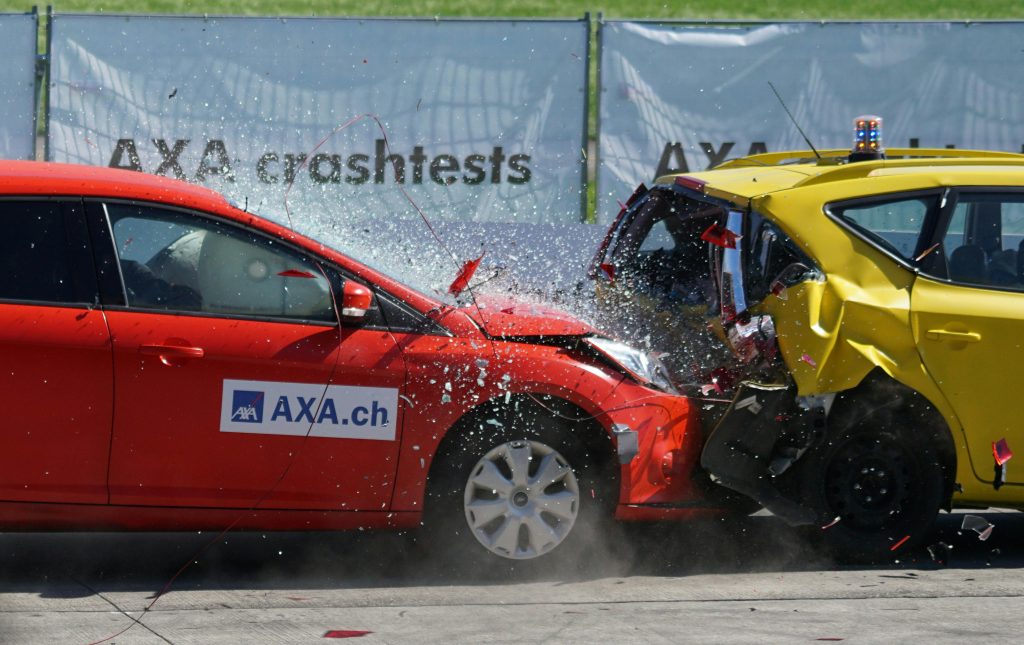 Emergency responders have a critical job, often requiring them to speed and navigate through traffic to reach those in need. But what happens when those actions result in an accident? Who’s at fault when an officer responding to an emergency collides with another vehicle? A recent Louisiana Court of Appeal case, Karonda Washington v. OneBeacon America Insurance Company, et al., sheds light on these complex issues.
Emergency responders have a critical job, often requiring them to speed and navigate through traffic to reach those in need. But what happens when those actions result in an accident? Who’s at fault when an officer responding to an emergency collides with another vehicle? A recent Louisiana Court of Appeal case, Karonda Washington v. OneBeacon America Insurance Company, et al., sheds light on these complex issues.
The Collision
Late one night in Baton Rouge, Karonda Washington was a passenger in a car driven by her daughter, Shankeyshia Jones. Two sheriff’s deputies, Brad Manuel and Tyler Comeaux, were rushing to a disturbance call with their lights and sirens activated. Jones moved her vehicle into the left lane to make a turn, and Deputy Manuel stopped behind her. As Deputy Comeaux attempted to pass, he rear-ended Manuel’s cruiser, pushing it into Jones’ vehicle and injuring Washington.
 Louisiana Personal Injury Lawyer Blog
Louisiana Personal Injury Lawyer Blog


 In the realm of personal injury law, a recent Louisiana Court of Appeal case has highlighted the potential pitfalls of multiple lawsuits arising from the same accident. The case, Wicker v. Louisiana Farm Bureau Casualty Insurance Company, et al., involved a car accident where the plaintiff, Joy Wicker, initially filed a suit through her insurer, State Farm, followed by a separate personal injury lawsuit. The defendants tried to dismiss the second suit based on the doctrine of res judicata, but the Court of Appeal overturned the trial court’s decision, emphasizing the distinct nature of the two claims.
In the realm of personal injury law, a recent Louisiana Court of Appeal case has highlighted the potential pitfalls of multiple lawsuits arising from the same accident. The case, Wicker v. Louisiana Farm Bureau Casualty Insurance Company, et al., involved a car accident where the plaintiff, Joy Wicker, initially filed a suit through her insurer, State Farm, followed by a separate personal injury lawsuit. The defendants tried to dismiss the second suit based on the doctrine of res judicata, but the Court of Appeal overturned the trial court’s decision, emphasizing the distinct nature of the two claims. A recent Louisiana Court of Appeal case sheds light on the complexities of personal injury claims following car accidents, particularly when pre-existing conditions are involved. In the case of Lewis v. Fowler, the plaintiffs were involved in a minor accident and subsequently claimed significant damages for aggravated chronic pain. However, the court ultimately ruled that their pre-existing conditions were not substantially worsened by the accident and that they had been adequately compensated by the initial settlement from the at-fault driver’s insurance. This decision highlights the importance of establishing a clear causal link between the accident and any claimed aggravation of pre-existing conditions and the challenges plaintiffs face in proving damages when their medical history is complex.
A recent Louisiana Court of Appeal case sheds light on the complexities of personal injury claims following car accidents, particularly when pre-existing conditions are involved. In the case of Lewis v. Fowler, the plaintiffs were involved in a minor accident and subsequently claimed significant damages for aggravated chronic pain. However, the court ultimately ruled that their pre-existing conditions were not substantially worsened by the accident and that they had been adequately compensated by the initial settlement from the at-fault driver’s insurance. This decision highlights the importance of establishing a clear causal link between the accident and any claimed aggravation of pre-existing conditions and the challenges plaintiffs face in proving damages when their medical history is complex. In a recent personal injury case, Latulippe v.
In a recent personal injury case, Latulippe v.  Calculating appropriate damages for a plaintiff who experiences ongoing injuries from a vehicle accident is complex. Jury awards generally are left undisturbed by appellate courts. The following lawsuit shows how the appeals process can alter a jury’s award for mental and physical pain and suffering.
Calculating appropriate damages for a plaintiff who experiences ongoing injuries from a vehicle accident is complex. Jury awards generally are left undisturbed by appellate courts. The following lawsuit shows how the appeals process can alter a jury’s award for mental and physical pain and suffering.